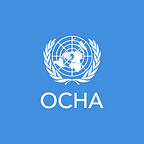Four Things to Know About Mosul
Early on Monday, 17 October, the military operation to retake Mosul commenced. Iraq’s second largest city has been occupied by the Islamic State of Iraq and the Levant (ISIL) since June 2014. Mosul’s residents will be at extreme risk as fighting intensifies. They may be caught up in the cross-fire, at risk from improvised mines and explosive hazards. They may have to flee their homes. As the military operation unfolds, saving lives and protecting civilians is a humanitarian imperative.
Here are four things to know about the humanitarian implications of the military operation to retake Mosul:
1. In a worst-case scenario, as many as 1.5 million people could be affected, resulting in the largest and most complex humanitarian crisis in the world in 2016.
The people of Mosul face grave risks to their lives. They may be caught between fighting lines or targeted by snipers. Hundreds of thousands may be forcibly expelled or left with no choice but to leave their homes behind to seek safety. Tens of thousands may be besieged or held as human shields. The market has ceased to function in many of the towns and villages that are being retaken in the military operation. Food, clean water, and medicines are in short supply in many of these vulnerable communities.
The humanitarian community has called upon all parties to the conflict to adhere to their obligations under international humanitarian law.
“All parties to the conflict must protect civilians and ensure they have access to the assistance they are entitled to and deserve”, said Stephen O’Brien, the Emergency Relief Coordinator, hours after the battle had begun. “Nothing is more important.”
2. Up to 1 million girls, boys, women and men may have to flee their homes.
Iraq is already experiencing a severe humanitarian crisis with more than 10 million Iraqis in need of some form of humanitarian assistance. A staggering 3.2 million civilians have already been displaced by previous waves of conflict.
As the fight to retake Mosul intensifies, as many as 1 million could be forced to flee their homes; Up to 200,000 people may be displaced in the first few weeks of the military operation to retake the city, and up to 700,000 people may eventually need shelter.
Humanitarian partners are accelerating their preparations to accommodate the anticipated waves of displaced families.
“Of the camps and emergency sites right now, there are seven sites that are open and can house more than 60,000 people”, says Humanitarian Coordinator for Iraq, Lise Grande. “We are working around the clock to build more than 20 emergency sites.”
3. Humanitarian partners have been doing everything possible to prepare to provide assistance to people in need.
Both displaced people and vulnerable residents in communities retaken from ISIL require humanitarian assistance.
The humanitarian community, UN Agencies, NGOs and partners have been planning and preparing since February 2016. Thousands of packages of food and household items, 243 tons of medicines and a vast range of water, sanitation and hygiene supplies have been prepositioned near to camps and emergency sites. Almost 70 mobile protection teams are on standby to provide general protection, child protection and gender-based violence services in camps and screening sites.
“These joint efforts are further evidence of the months of careful planning, preparation and our commitment to deliver assistance to the people of Mosul,” said Lise Grande, the Humanitarian Coordinator for Iraq. ”We have prepared as efficiently as we could with the available resources.”
4. Only some of the US$367 million urgently needed to help the people of Mosul has been received
In early October, updated urgent requirements indicated that a total of US$367 million will be needed to finalize preparations and provide life-saving assistance to families in their initial three months of displacement. Generous contributions have been made by donors, following the launch of a humanitarian appeal in July to prepare for the Mosul operation. However, these funds are only just starting to arrive, and humanitarian needs are growing rapidly. With the shortfall in funding, key components of the response, including emergency sites, remain critically underfunded.
The financial shortfall for the Mosul preparations comes in context of underfunding for the humanitarian operation in Iraq as a whole. In January 2016, the Humanitarian Country Team launched a highly-prioritized 2016 Humanitarian Response Plan calling for US$861 million, to assist 7.3 million out of the 10 million people in need of humanitarian assistance. Ten months into the year, the plan is funded at 60 per cent.
Depending on the scale and duration of the military campaign to retake Mosul, as many as 12 to 13 million Iraqis could require humanitarian assistance by the end of the year.
